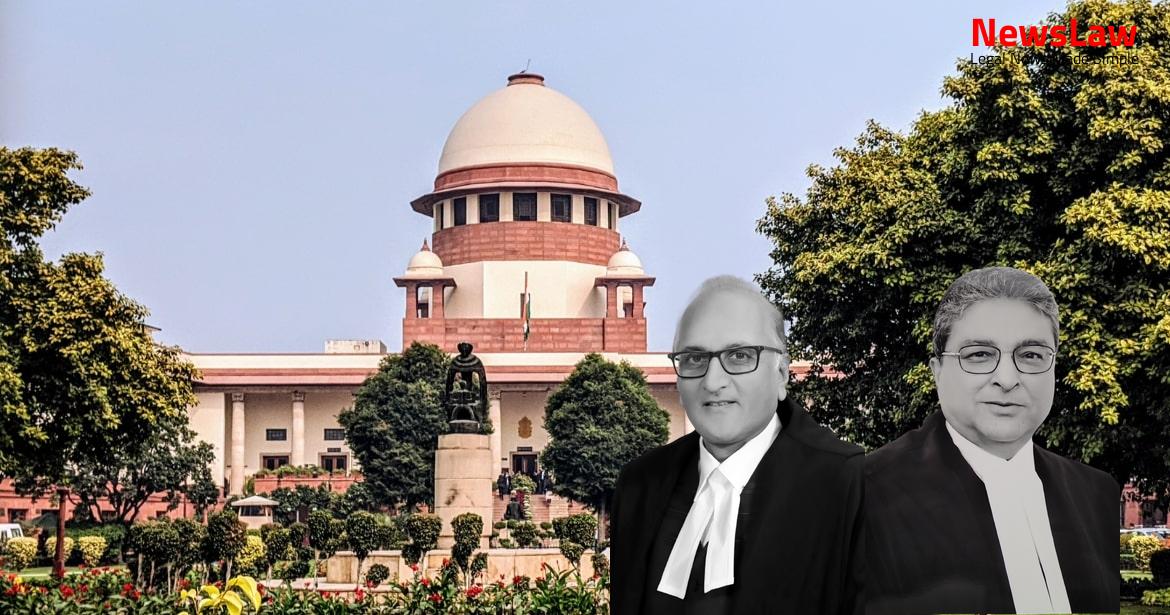In a recent legal case, the Chief Justice of India intervened to set aside a High Court’s decision to grant bail to a history sheeter accused of serious offenses. This case sheds light on the crucial role of the judiciary in analyzing the criminal antecedents of the accused, the potential threat to witnesses, and the overall impact on law and order. Judicial discretion is key in evaluating factors such as prima facie evidence, nature of accusations, and likelihood of repeat offenses. This case underscores the importance of cautious consideration when granting bail to individuals involved in organized crime, to prevent adverse effects on justice and public safety.
Facts
- The accused, who is a contract killer and sharpshooter, has been arrested under the U.P. Gangster and Anti-Social Activities (Prevention) Act, 1986.
- The appellant, wife of the deceased victim Rajnarain Singh, alleges that the accused, along with others, conspired to murder her husband.
- A First Information Report was registered with Case Crime Number 200 of 2015 at P.S.-Sodhari, Distt.- Azamgarh.
- The charge sheet filed against the accused includes offences under Sections 120-B and 302 of the Indian Penal Code, 1860, and Sections 3 and 25 of the Arms Act, 1959.
Also Read: Electoral Malpractices in Mayor Election
Analysis
- The High Court has ignored the antecedents of the accused and the potential for repetition of criminal activities.
- The conduct of the accused during the trial was non-cooperative, leading to threats to witnesses and the need for police protection.
- The gang the accused belongs to is focused on making gains through serious criminal activities.
- The High Court’s bail decision overlooked the potential threat to witnesses and the overall impact on law and order.
- Granting bail to history sheeters charged with serious offenses like murder must be cautiously considered to avoid negative repercussions.
- The accused is part of an organized crime gang in Azamgarh committing offenses under various sections of the Indian Penal Code.
- The gang instills fear and prevents people from reporting their activities to authorities.
- Routine bail for gangsters has previously led to adverse effects on law and order, considering the accused’s history of serious offenses.
- High Courts must scrutinise every aspect when considering bail for a history sheeter
- Threat to the life and liberty of victims/witnesses if accused is released on bail
- Courts play a crucial role when citizens are scared due to heinous offences
- Proper analysis of criminal antecedents of the accused is essential
- Ordinarily, the Supreme Court does not interfere with High Court’s bail decisions
- High Courts must exercise discretion judiciously and in compliance with established principles
- Factors to consider include prima facie evidence, nature of accusations, punishment severity, flight risk, accused’s character, likelihood of repeat offence, witness influence, and justice obstruction
Also Read: Balancing Power and Transparency: Electoral Bonds Struck Down, Disclosure Mandated
Decision
- The appeal was allowed and the order of the Allahabad High Court granting bail to the accused was set aside by the Chief Justice of India, S.A. Bobde.
Also Read: Recall of Resolution Plan Approval: Legal Analysis
Case Title: SUDHA SINGH Vs. THE STATE OF UTTAR PRADESH (2021 INSC 271)
Case Number: Crl.A. No.-000448-000448 / 2021



